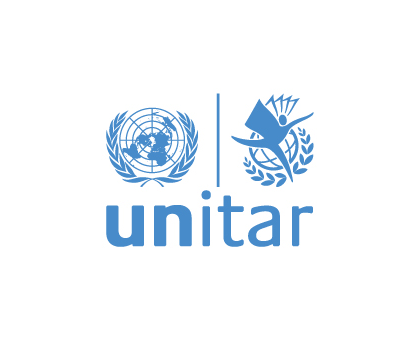
CIFAL Jeju - Global Citizenship Education part 2
To achieve the Sustainable Development Goals (SDGs), it is necessary for us to foster our future generations to be more aware of the goals and targets and capable of take actions to lead the changes. Within those goals, SDG 4 establishes that by 2030 we must “Ensure inclusive and equitable quality education and promote lifelong learning opportunities for all”. One of these targets, 4.7, refers to the knowledge and skills that are necessary for a sustainable future. Specifically, it states that by 2030, we have to “ensure that all learners acquire the knowledge and skills needed to promote sustainable development, including, among others, through education for sustainable development and sustainable lifestyles, human rights, gender equality, promotion of a culture of peace and non-violence, global citizenship and appreciation of cultural diversity and of culture’s contribution to sustainable development”.[1]
With globalization and negative climate impacts being observed across all regions, we are seeing how we are intertwined than ever and given with the common mission to solve the challenges that are lying ahead. Consequently, the necessity for individuals to understand how their life choices and local decisions can impact the world is becoming increasingly important.[2] Not only as a citizen of one’s country, but also as a global citizen, citizens regardless of their nationalities all are expected to understand the interdependency and interconnectedness of political, economic, social and cultural norms and decisions between the local, the national and the global levels. And more so, to be motivated in undertaking actions that reduce inequalities and enhance sustainability. [3]
These citizens were once children and youth, and our children and youth will soon become citizens of the world. The world currently has the largest generation of young people in history (1.8 billion) and they are connected to each other like never before. This means that provided with the necessary knowledge and opportunities, they can constitute a tremendous and essential asset worth in promoting sustainability.[4] The UN has long recognized that young people are a major human resource for development and key agents for social change, economic growth, and technological innovation. Global Citizenship Education (GCED) offers the first step. It provides the chance for our youth to respect diversity, build a sense of belonging to a common humanity and become responsible and active global citizens.[5]
In this regard, CIFAL Jeju’s GCED program aims to empower students of Seogwipo Municipality, Jeju Island by widening their understanding of issues such as human rights, poverty, inequality, multiculturalism, environmental sustainability and more. With its own pool of trained GCED educators and standardized learning materials, CIFAL Jeju is able to apply a participatory and learner-centered approach, engaging its students to not only understand the concepts of sustainability but critically think about the active roles they can play in their daily lives to be proactive global citizens. The program also seeks to leave no one behind, reaching schools in the most remote areas of Jeju, centers for multicultural students, and community childcare centers, to offer all students, regardless of their social-economic backgrounds to reach their potential and grow into their roles as global citizens.
[1] UNESCO (2019), SDG indicator 4.7.1: Proposal for a Measurement Strategy
[2] Lynn Davies (2006) Global citizenship: abstraction or framework for action?, Educational Review
[3] UNESCO (2015), Global Citizenship Education: Topics and Learning Objectives
[4] UN (2018), UN Youth Strategy
[5] UNESCO (2019), SDG indicator 4.7.1: Proposal for a Measurement Strategy
After the course, participants will be able to
- Understand globalization, the interdependence of global and local concerns, and the Sustainable Development Goals (SDGs)
- Identify inequalities based on gender, socio-economic status, culture, age, and other issues
- Develop attitudes of care and empathy for the environment and respect for diversity
- Understand how individual lifestyle choices influence social, economic and environmental development at local, national, global level, and recognizes the responsibility to be an informed, engaged, and responsible global citizen
Students are required to take one mandatory course - Global Citizenship (Interconnectivity) and the Sustainable Development Goals (SDGs), and one optional course on Human Rights and Child Rights, Poverty and Inequality, International Development and Careers, Multiculturalism or Environmental Sustainability
Lectures and Activities
Open to all elementary, middle, and high school students residing in the Seogwipo Municipality

